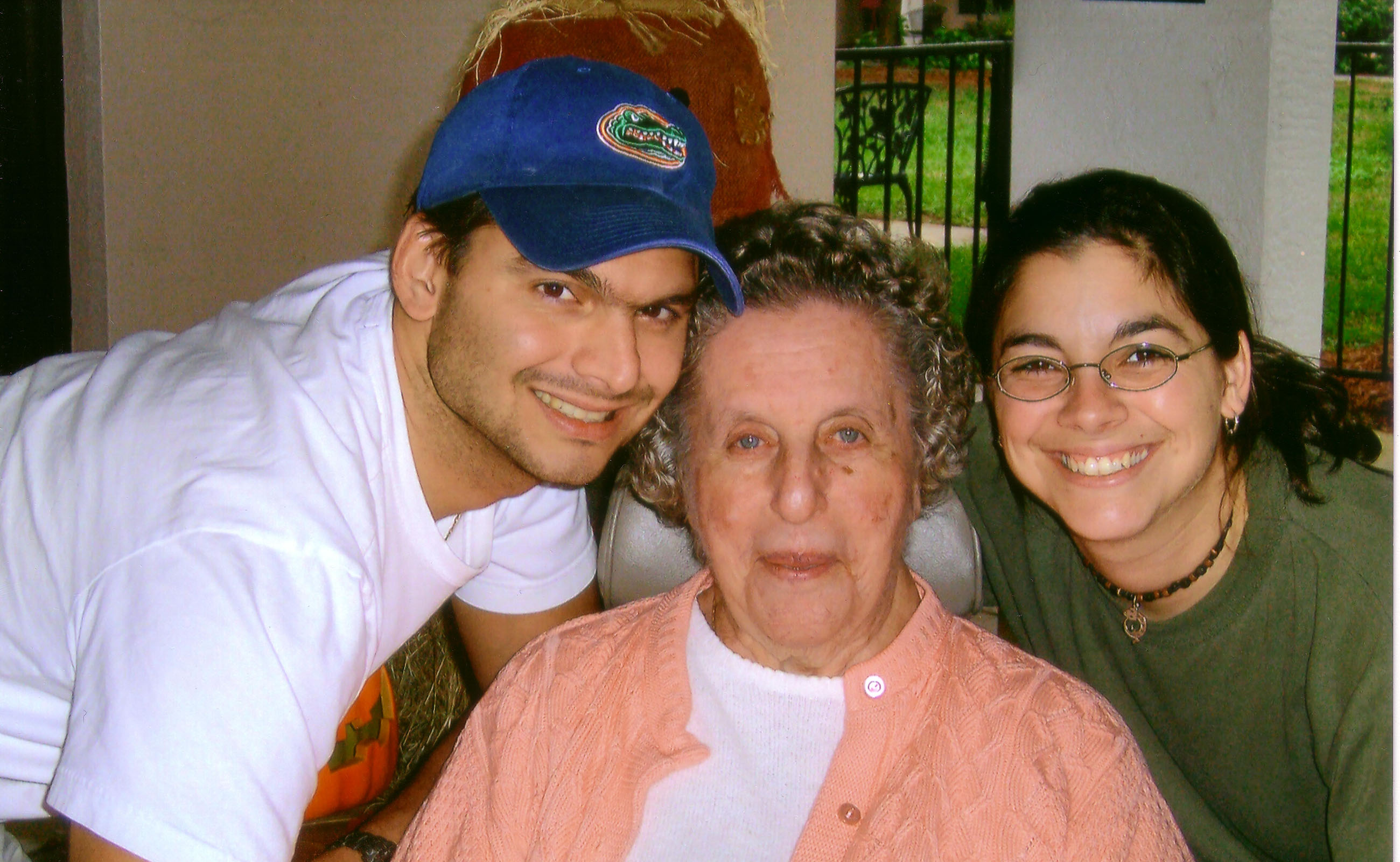My grandmother was born on October 28, 1920 so today would have been her 97th birthday. It’s hard to believe she’s been gone for ten years now; she was such an incredibly powerful woman and even towards the very end of her life I just sort of assumed she’d never die. I loved her dearly and wish she’d lived long enough to meet my sons, her great-grandchildren. I know she’d exclaim, “Ooh-dee!” in her funny Italian-Rhode Island accent and be overjoyed to stuff them full of pasta.
This is a paper I wrote for a literature class in college. We were told to interview a family member and I remember spending an hour on the phone with her and how happy she was to tell me a bunch of stories.
David V. Gagne
LIT 4930 – 01/11/96Anna Sofia DiFalco Albanese
(b. 1920)My grandmother told me the one thing she remembers most vividly about the 1930s is sitting with her feet on the coal stove which her mother used for cooking and using its light to study. Gas was too expensive, even for an undertaker’s family, so the stove doubled as a lamp. She did her schoolwork and countless crossword puzzles sitting at that stove.
She was simply Anna DiFalco then; she didn’t marry Papa until 1946, after he came home from the war. The DiFalco’s were not destitute like many of their neighbors. Papa DiFalco owned a mortuary, one of the few in the state of Rhode Island at the time. They had enough money for vegetables and occasional meat. They were frugal, Nana told me. Papa DiFalco helped to support an enormous Italian extended family – aunts, uncles, cousins, in-laws. The DiFalco’s had the only telephone in their neighborhood. They had two lines, in fact – one for the mortuary and one for the family. People from blocks around would often come to use the phone and Papa DiFalco always let them. Nana used to think it was funny that she had a phone in her teens, but she couldn’t call anyone because she didn’t know anyone else with a phone!
Papa DiFalco also owned one of the very few cars in the area. It was a limousine for the mortuary. (They didn’t get a real family car until 1937.) He graciously used to chauffeur family and friends on special occasions like weddings and baptisms in the family car. Nana said he didn’t charge people, he was, “just helping out.” Often, she said, women would come to the front door telling of families without food or husbands out of work and Papa DiFalco would always give them five or ten dollars (a fortune in those days) to buy groceries. The hobos (the polite word for drunks) would be given clothes taken from dead men, Nana said, so they wouldn’t have money to spend on drink.
Nana said she will always remember how her father co-signed for a five-thousand dollar loan for a man he knew. The man made two of his monthly payments and then took his wife and seven children and moved to California. Another man took advantage of Papa DiFalco’s generosity in the same way and he had to live with paying both of these loans for quite some time.
But there were also good people, like the woman who asked if she could farm a little piece of land he owned up the road. Her husband had had his legs amputated and then soon after died. She was left with four children and bills she couldn’t pay. She couldn’t get a job because of her children. He said yes. The land wasn’t as big as a parking lot today, but then it seemed like an acre. Now you must remember that this was Rhode Island, not Oklahoma, and they surely thought she was crazy. The only land was rocks and scrubs. Every morning at five they would see her pulling her children in a little red wagon the three miles up a long hill to Papa DiFalco’s little plot of land. And every night she would come back with potatoes and green beans and payment. Somehow she managed to grow enough to survive and she did her best to give some back to Papa DiFalco.
Nana said that Roosevelt started the W.P.A. to give men jobs digging ditches and paving roads. There were men on every corner selling apples. In 1932 the law which defined the forty hour work week was passed by Congress. Coffee was $.29/lb. For entertainment they did crossword puzzles and listened to the radio. From noon until one every afternoon they listened to the Italian hour and then soap operas. Every Sunday there was opera on the radio all day. On Saturdays Papa DiFalco would give Nana $1.25 to take her four siblings to the movies where tickets were $.25/ea. They would sneak candy into the theater so they wouldn’t have to buy it there. (I do the same thing, actually!) She said that they would watch two movies and then stay to see them again if they enjoyed them. Nana told me that there was a man who used to accurately say of people like her family, “We were poor, but we didn’t know we were poor.”
